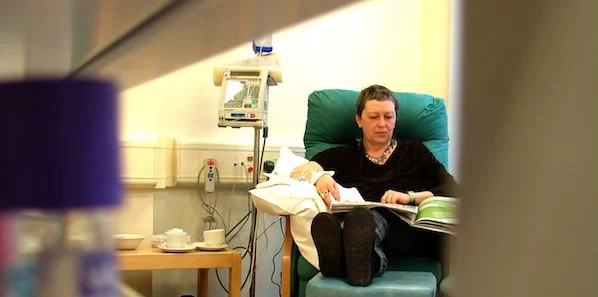Viruses developed to target and kill cancer cells could boost the effectiveness of chemotherapy to the arms and legs and help avoid amputation, a new study published in the International Journal of Cancer reports.
The research, which was carried out by the London-based Institute of Cancer Research and the Royal Marsden, tested the effectiveness of a genetically engineered version of the vaccinia virus known as GLV-1h68, modified to infect and kill cancer cells.
They found that using the virus alongside isolated limb perfusion chemotherapy – given directly to blood vessels supplying the affected arm or leg as an alternative to amputation – was more effective in rats than either treatment on its own.
The study suggests that the combination may help some skin cancer and sarcoma patients avoid radical surgery or amputation. A clinical trial is planned.
The perfusion technique uses a heart and lung bypass machine connected to the arm or leg to separate out its blood supply, thus allowing a high dose of a chemotherapy drug (in this case melphalan) to be given directly and specifically to the diseased limb without causing toxic side-effects to the rest of the body.
Chemotherapy is given alongside a drug called tumour necrosis factor-alpha (TNF-α) which helps to make blood vessels leakier, thus permitting melphalan to get to the tumour more effectively. The researchers found that TNF- α also helped the virus get to the tumour more easily.
The scientists tested the treatments first on rat sarcoma cells in tissue culture, and found combining modified vaccinia virus and melphalan killed more cells than either treatment on its own.
They tested the combination in rats with advanced sarcoma and found it slowed tumour growth and prolonged survival by 50% compared to standard ILP therapy (melphalan and TNF-α). Rats that were given the combined therapy survived for a median of 24 days. This compared to 16 days in rats who received standard limb perfusion treatment, 15 days with the modified virus alone, and 11 days with no treatment. The modified virus was observed to have no adverse effects on the rats.
Isolated limb perfusion allows drugs to be given in much higher doses than for the whole body. It is a last line of treatment for advanced skin cancer or sarcomas aiming to avoid amputation. As it is not always successful researchers have been searching for ways to make the approach more effective.
The study was funded by the Dr Lucy M Bull Lectureship and Research Fund and supported by the NIHR Biomedical Research Centre at The Royal Marsden NHS Foundation Trust and The Institute of Cancer Research (ICR), with additional funding from The Royal College of Surgeons of England and Sarcoma UK.
References:
Pencavel TD, Wilkinson MJ, Mansfield DC et al. (2014) Isolated limb perfusion with melphalan, tumour necrosis factor-alpha and oncolytic vaccinia virus improves tumour targeting and prolongs survival in a rat model of advanced extremity sarcoma. International Journal of Cancer. Published onlin 22 July.
DOI: 10.1002/ijc.29059
Latest Articles
Cancer, Research
Viruses developed to target and kill cancer cells could boost the effectiveness of chemotherapy to the arms and legs and help avoid amputation, a new study...


![Tuberculosis Diagnostics: The Promise of [18F]FDT PET Imaging Tuberculosis Diagnostics: The Promise of [18F]FDT PET Imaging](https://res.cloudinary.com/healthmanagement-org/image/upload/c_thumb,f_auto,fl_lossy,h_184,q_90,w_500/v1721132076/cw/00127782_cw_image_wi_88cc5f34b1423cec414436d2748b40ce.webp)







